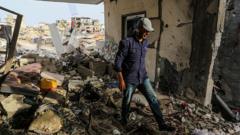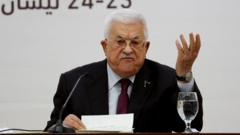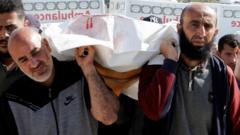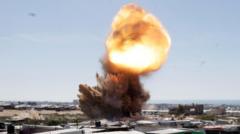As Israel continues to grapple with the implications of conflict, health professionals are innovating ways to support hostages returning from harrowing experiences.
### Hostages and Healing: A New Approach to Reintegrating Freed Captives in Israel

### Hostages and Healing: A New Approach to Reintegrating Freed Captives in Israel
The complex journey of former hostages in Israel highlights an evolving medical discipline focused on psychological and physical recovery.
The transition from captivity to freedom for hostages released from Gaza is proving to be a multifaceted challenge, driving the development of specialized care protocols by Israeli medical teams.
Workers setting up screens to ensure hostages' privacy at Sheba Hospital in Tel Aviv mark a turning point in how they are treated following their release. A woman recently freed after spending over 15 months in captivity made the remarkable decision to decline any medical tests, delighting the doctors who saw this as a sign of progress and reclaiming autonomy after her ordeal.
Prof. Noa Eliakim-Raz, who leads the department dedicated to assisting hostages, reported that the woman’s choice allowed them to clear an entire day in their medical schedule, signifying a step toward normalcy. Health professionals have been collaborating over the past year, forming a comprehensive manual that reflects their experiences and observations on guiding hostages as they reintegrate into society.
The medical community acknowledges the unique challenges presented by the diverse backgrounds of the captives, which include individuals of all ages, from infants to the elderly. Eti Kisos, a deputy director at the Ministry of Welfare and Social Affairs, emphasized, “We are crafting the theoretical foundation for this new approach.”
The complexities of the situation stem from the significant number of people, approximately 250, abducted during the October 7, 2023, Hamas-led attack, which ignited a protracted conflict in Gaza. While over 100 hostages were released in a brief truce that November, the dynamic remains fragile; the release of an additional 30 hostages early this year did little to stabilize the situation as the cease-fire subsequently faltered.
This renewed focus on the mental and physical rehabilitation of hostages underscores the deep societal impacts of prolonged conflict and the evolving methods employed by medical professionals to aid in healing and reintegration.
Workers setting up screens to ensure hostages' privacy at Sheba Hospital in Tel Aviv mark a turning point in how they are treated following their release. A woman recently freed after spending over 15 months in captivity made the remarkable decision to decline any medical tests, delighting the doctors who saw this as a sign of progress and reclaiming autonomy after her ordeal.
Prof. Noa Eliakim-Raz, who leads the department dedicated to assisting hostages, reported that the woman’s choice allowed them to clear an entire day in their medical schedule, signifying a step toward normalcy. Health professionals have been collaborating over the past year, forming a comprehensive manual that reflects their experiences and observations on guiding hostages as they reintegrate into society.
The medical community acknowledges the unique challenges presented by the diverse backgrounds of the captives, which include individuals of all ages, from infants to the elderly. Eti Kisos, a deputy director at the Ministry of Welfare and Social Affairs, emphasized, “We are crafting the theoretical foundation for this new approach.”
The complexities of the situation stem from the significant number of people, approximately 250, abducted during the October 7, 2023, Hamas-led attack, which ignited a protracted conflict in Gaza. While over 100 hostages were released in a brief truce that November, the dynamic remains fragile; the release of an additional 30 hostages early this year did little to stabilize the situation as the cease-fire subsequently faltered.
This renewed focus on the mental and physical rehabilitation of hostages underscores the deep societal impacts of prolonged conflict and the evolving methods employed by medical professionals to aid in healing and reintegration.



















